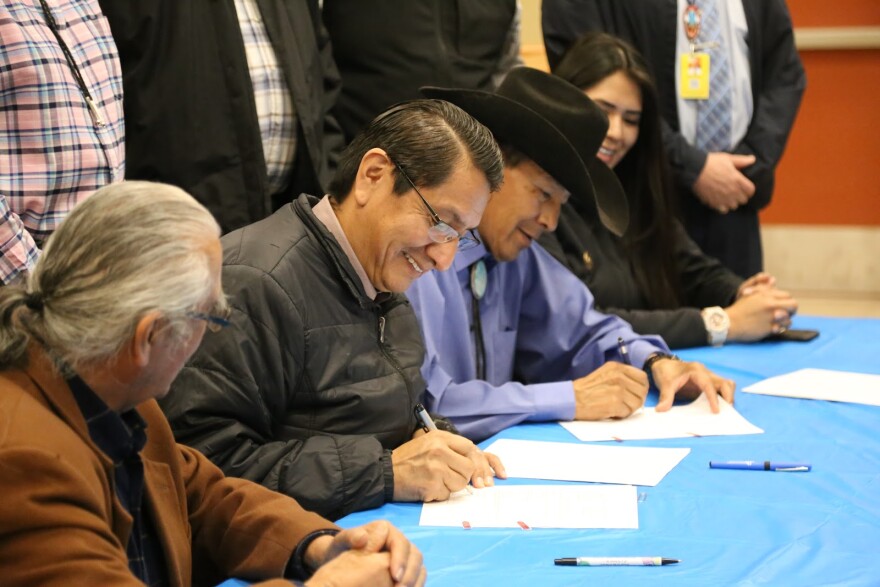TEEC NOS POS, ARIZ. — A 2-year-old stalemate over who should maintain roads on the Navajo Nation in San Juan County ended Monday, with the signing of a new road maintenance agreement. But county officials say the arrangement doesn’t go far enough.
After months of negotiation, the two governments have agreed that San Juan County will maintain 75 miles of roadway. Many more miles of road will remain the responsibility of the Navajo Division of Transportation, or NDOT, concerning county officials and residents.
“It’s a starting point, but it won’t appease everybody,” said county manager Mack McDonald. “Because we don’t have 100% of the roads, there are some citizens that will be mad.”
The Navajo Nation and San Juan County will each put up $100,000 annually to split the cost of maintaining the roads, all of which are school bus routes. The county will receive reimbursement for maintaining the Navajo Nation roads through an existing state program that uses fuel tax money to pay for county road maintenance.
NDOT Director Garrett Silversmith said that his division is limited by the funding it receives from the federal government and can only spend $100,000 in San Juan County at this time. He called the agreement a “good starting point” and said that NDOT is open to working with the county to add more miles of road to the maintenance agreement.
“As we’re able to secure more funding, we can increase the amount of miles we blade,” he said. “We can include additional routes that San Juan County wants.”

The stalemate over road maintenance started in 2018, when NDOT asked San Juan County to stop maintaining reservation roads, citing a legal issue related to rights of way. Road conditions deteriorated after NDOT took over maintenance, residents say.
“After NDOT went in, we had community members coming in complaining all the time, almost every day, saying, ’What are they doing with our roads? They’re supposed to fix it,’” said Marilyn Holley, a chapter official from Red Mesa. “And we’d say, ‘They’re supposed to do it quarterly.’ But quarterly came around and they never came.”
NDOT has only been out to work on the roads in Red Mesa twice since it took over maintenance in 2018, Holley said. And the roads have gotten so bad that school bus drivers won’t drive on some of them.
“The parents had to bring their kids to the main highways, because of those roads, the bad conditions on them,” she said.
It will take at least two months for the county to line up staff and equipment to start performing maintenance, with a focus on restoring the roads to the “county’s standards,” McDonald said. That includes potholes and repairing road crowns, which could quickly eat up the $200,000 budgeted in the agreement. If that happens, he said, the county will continue performing maintenance and ask the Navajo Division of Transportation to pay more.
“No matter what, we’ve got to do the work,” he said. “We can communicate and say, ‘We didn’t budget enough.’”
Kate Groetzinger is a Report for America corps member who reports from KUER's Southeast Bureau in San Juan County. Follow Kate on Twitter @kgroetzi


